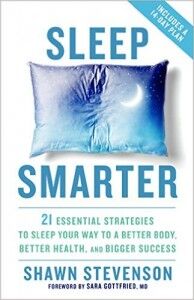 The MCAT is a grueling 7.5-hour exam with an official start time of 8 a.m. This means that you will have to wake up at around 6 am so you have time to eat, shower, commute, and arrive at the testing site with enough time for the lengthy check-in process.
The MCAT is a grueling 7.5-hour exam with an official start time of 8 a.m. This means that you will have to wake up at around 6 am so you have time to eat, shower, commute, and arrive at the testing site with enough time for the lengthy check-in process.
But it is common knowledge that the average pre-med student studies well into the night!
See the dilemma?
My High School Senior Trip
This is a slight digression but hopefully you’ll get my drift! I remember being really excited for my high school senior trip to Washington, D.C. The class was scheduled to meet at 7 a.m. to board the bus. I slept at a friend’s house because she lived closer to school, and we set our alarms for 5 a.m.
I wanted to make sure I was well rested, so I did the math backwards. I needed to wake up at 5 a.m. and wanted nine hours of sleep, so I needed to go to sleep by 8 p.m.
No surprise. Of course that didn’t happen. My friend and I chatted until around 10 p.m. “Not too bad,” I thought. “I’ll get seven hours of sleep.”
But as a teenager with a new cell phone (yes, they were just becoming popular), I’d been up late many nights before just chatting away. I was still tossing and turning by 11 p.m. “I’ll still get six hours,” I thought in an attempt to relax myself.
By midnight I was trying to force myself to sleep (counting sheep jumping over a fence, taking bottles of beer off the wall, etc.).
“If I pass out now, I’ll get five hours. I can survive on that,” I thought.
I remember seeing my watch after 1 a.m. and waking up bleary- eyed and tired a few hours later.
Sleeping for the MCAT
As an MCAT tutor I have seen that my students are no different than I was in high school or college.
They typically stay up until midnight or later trying to get a few more hours of studying in each night. And when the MCAT rolls around they have trouble falling asleep on time.
Sure, you plan to go to bed at 10 p.m. the night before your exam. But late night studying habits and nerves may not let you fall asleep before the wee hours of the morning.
You know the MCAT is grueling, and you know you need a full night’s rest, so how do you ensure that you actually get your much-needed sleep so that you can show up to your exam awake, refreshed, and ready to excel?
Waking Up ON Test Day Is Too Late!
The key is a long-term sleep modification cycle. The later you go to sleep now, the more time it will take you fix your bedtime.
But trust me, it’s worth it. I estimate that fatigue and burnout will cost many pre-med students points on their exam, especially in the final two sections when exhaustion starts to catch up with you.
Click to Tweet This -> “Literally sleep your way to success and wake up to a better #MCAT score“
Eating sugar or drinking caffeine will only get you so far, and you’ll still crash halfway through if you’re not well rested. What will help you though is gradually building up your test-taking endurance to ensure that you are comfortable, confident and mentally present for the entire exam.
(Click to read about how to build up endurance for the 7.5 hour exam)
How To Modify Your Sleep Cycle
The first thing you need to figure out is the difference between your target bedtime and your current bedtime.
That’s your target “fall asleep / pass out” time. Add in an essential half hour for your “get sleepy” time.
Plan for it to take 2-4 days to push your bedtime back by a half hour. If you need to push your bedtime back from 12 a.m. to 8 p.m., a total of 8 half-hour segments, plan for it to take 16-32 days.
Being able to fall asleep will depend on a number of factors such as the foods you eat and activities you engage in throughout the day.
Here are two empirically researched basics I’ve been using effectively with my MCAT tutoring clients.
- Avoid caffeine in the final 6-8 hours before bedtime. Caffeine has a half-life of 5-6 hours, which can not only sabotage your ability to fall asleep, but also the quality of your asleep.
- Avoid electronics in the hour before bed, especially those with bright screens like your computer or smart phone, and other strong stimulants. You need to give your brain a chance to turn off.
My Secret Tip for Falling Asleep
Here is my nearly fail-safe way to help you fall asleep. I learned it as an undergraduate when I tried to study while lying in bed. More often than not I woke up in the morning with my face planted on my textbook!
That’s exactly what we’re trying to achieve here!
You need to set the mood in your bedroom.
Turn out the lights, turn off your phone, and turn on a bedside lamp you can reach without getting out of bed (In spite of all our intensive MCAT studying, we humans are still pretty lazy).
Select one of your MCAT books and open to a topic or chapter you find the most boring and tedious to review.
The boring book, dim lighting, your comfy bed and warm blanket will all combine to give you that face-plant effect. Try to turn off the lamp when you feel yourself fading away!
In fact, when reading in bed and feeling drowsy I try to force myself to read for a few more minutes till my eyes are begging for sleep. Then it's just a flick of the lamp and I'm out.
This will be difficult the first day, and you may find yourself reading for 20, 40, maybe even 90 minutes. That’s all right because you’re getting in some bonus studying!
(I use a lamp very similar to this one)
Take It to the Next Level
The next step is to ensure that you’re actually tired the following evening.
Set your alarm clock to eight hours after your intended bedtime. If you fall asleep after your intended bedtime and get less than eight hours of sleep, you’ll actually be sleepy the next day.
Once you’ve mastered a new bedtime 2-3 days in a row, set your bedtime and wake-up time back by 30 minutes. Rinse and repeat.
Your goal is to have a bedtime of 9-10 p.m. a FULL WEEK before your actual exam. If you can fall asleep at 10 p.m. and wake up at 6 a.m. for a full week, you’ll be able to do so for exam day. Your body will be used to it and you’ll feel rested.
And even if nerves keep you up a little later, you’ll still fall asleep earlier than most students.
Remember losing sleep may mean losing points. Don’t take that risk. It takes some planning and discipline to set and stick to a bedtime routine but trust me, you will be glad you did (and hopefully grateful to me) when you’re about halfway through your exam and feeling great!
 Recommended Bedtime Reading
Recommended Bedtime Reading
Are you trying to fix your sleep habits? Looking to get more out of the time you DO spend asleep? This book has proven to be a game changer for myself and some of my MCAT Study Hall members.
Purchase your copy on amazon (affiliate link)
I’d love to hear from you.
What does a normal wakeup/bedtime routine look like for you? Let me know in the comments below.



Leave a Reply